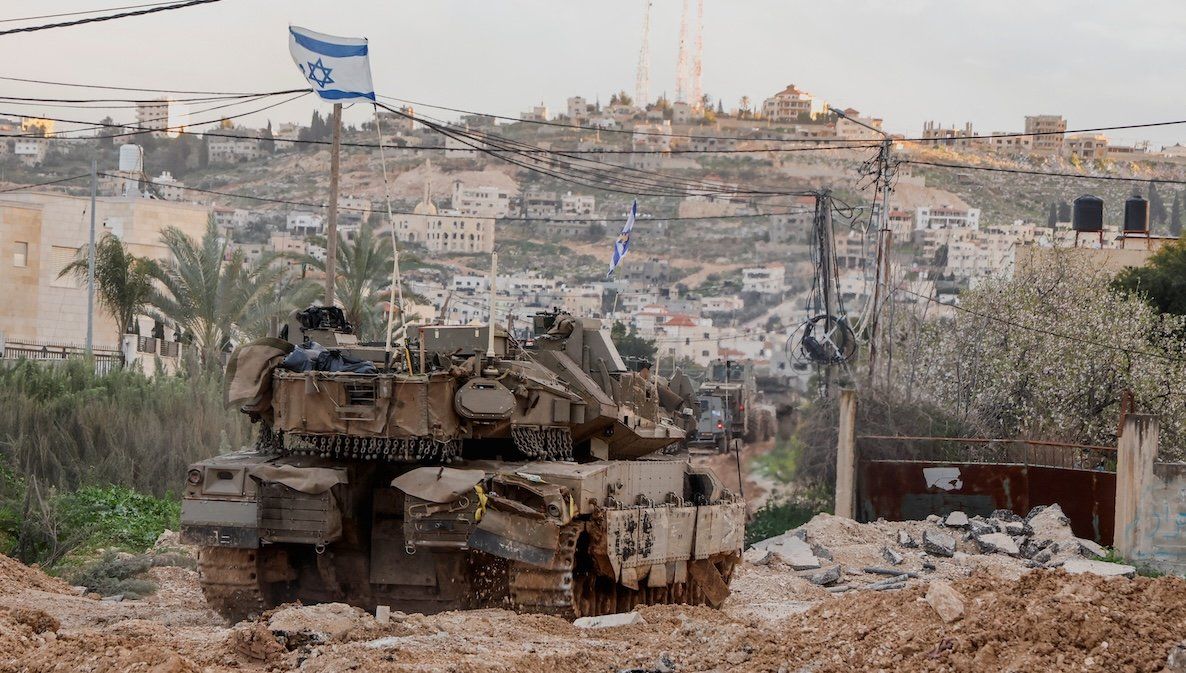Israeli machinery maneuvers during an Israeli operation in Jenin, in the Israeli-occupied West Bank, on Feb. 23, 2025.
Uneasy week: Tensions have been high since Hamas mistakenly sent the remains of an anonymous Gazan woman instead of those of Shiri Bibas when it returned the bodies of three Israeli hostages last week.
The Israeli government says it won’t return the Palestinian prisoners until Hamas commits to halting the hostage “ceremonies.” Finalizing the first phase of the deal, which is set to expire next weekend, is contingent upon the release of these detainees. Hamas, in turn, has called the delay a “blatant violation of [the ceasefire’s] terms.”
The second phase of the deal would involve Hamas releasing all remaining Israeli hostages in return for Israel withdrawing its troops from Gaza, and the details of the third and final phase still need to be ironed out.
Complicating matters further, the Israel Defense Forces moved tanks into the West Bank on Sunday and told tens of thousands of displaced Palestinians that they could not return to their homes in the occupied area. The moves are reportedly part of the largest Israeli military operation into the Palestinian Authority-controlled territory for more than two decades.